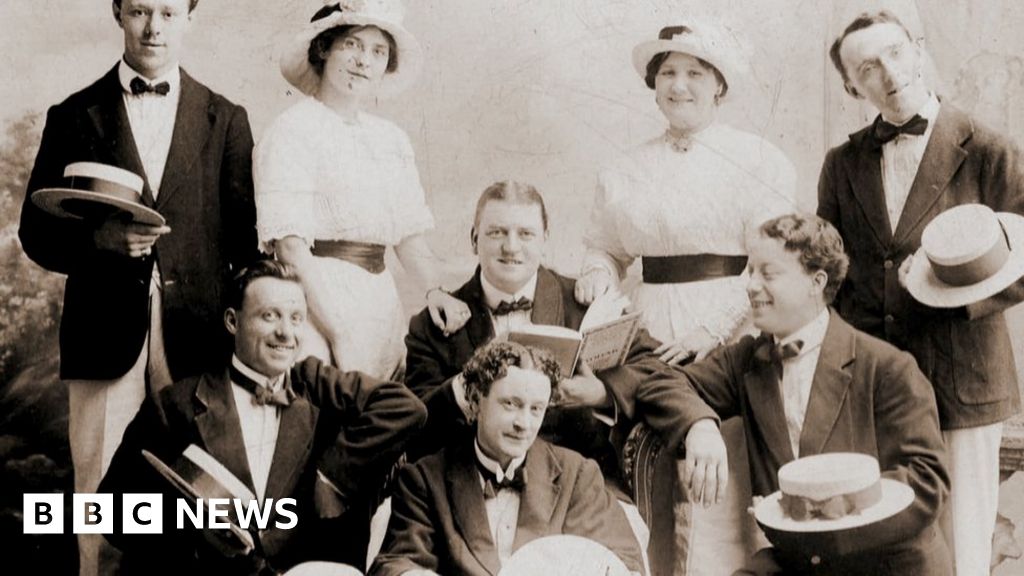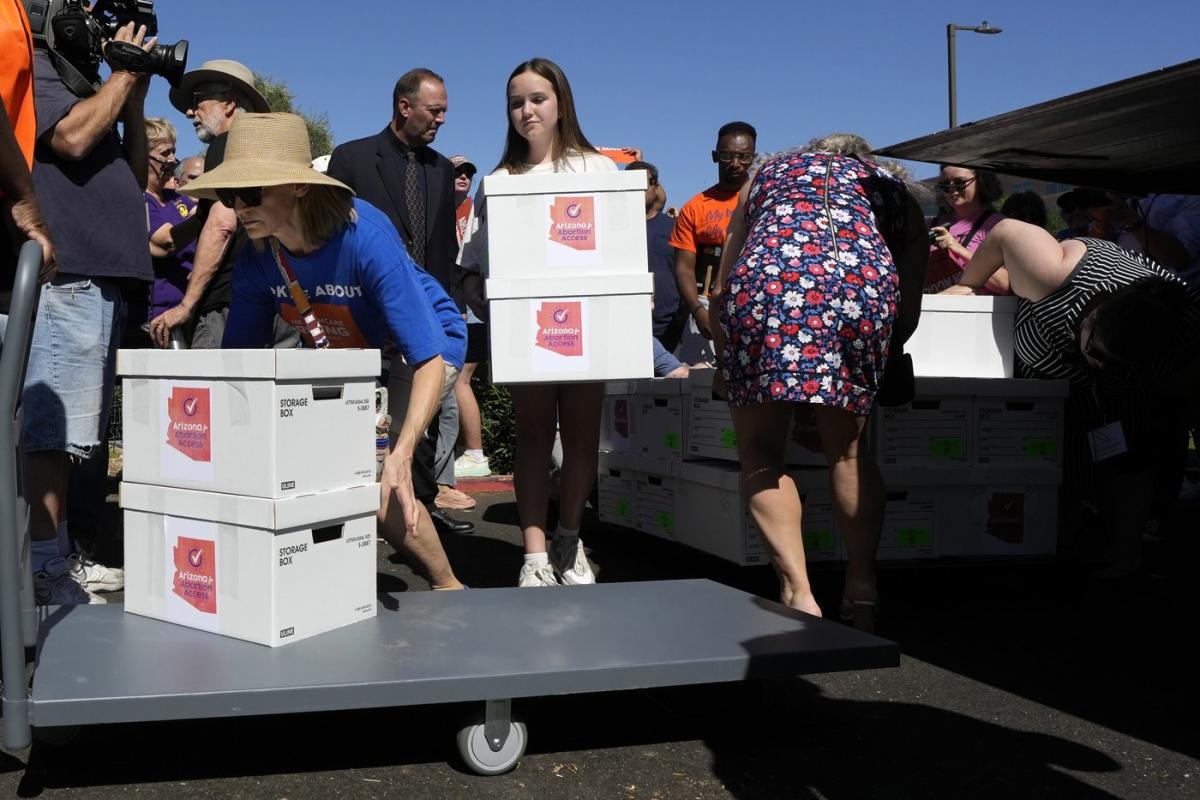Entertainment
Scotland’s own greatest showman – BBC News

Image source, Velvet Wolf/BBC Scotland
It is the rags to riches tale of a young man with a talent for putting on extravagant shows for the masses, but Scotland’s greatest showman has not yet attracted the Hollywood treatment.
While Hugh Jackman’s film portrayal of PT Barnum continues to wow audiences around the world, the man who changed Scottish mass entertainment is largely unknown.
Fred Collins rose from a tough upbringing in the east end of Glasgow at the end of the 19th Century to be the head of a thriving theatrical agency putting on shows all over the country.
As well as introducing Scots to a host of top variety stars, Collins is credited with reinventing pantomime and making it the massively popular entertainment it remains today.
Collins is also said to have helped to raise standards of pay and conditions for the acts, who had often been exploited by unscrupulous agents in the past.
Image source, Velvet Wolf/BBC Scotland
Scotland’s greatest showman was born James Alfred Nelson in Duke Street, Glasgow, in 1876.
His father died when he was just a year old and by the age of nine he was an orphan, being cared for by his older sister.
At 13 he trained to be a house painter, but at the weekends he would go to see the shows.
Musical hall
At the end of the 19th century, musical hall entertainment did not take place in plush theatres.
The cheap mass entertainment for the poverty-stricken masses was performed in poorly-appointed halls or rooms at the back of pubs.
The musical hall would present all types of acts from freak shows and high-wire performers to comedians, who sung amusing songs.
Fred was bitten by the musical hall bug and started to write songs that he sold to the artists.
One of the singers who bought Fred’s songs was a young Harry Lauder, who became a lifelong friend.
According to Ross Collins, the impresario’s great grandson, Fred began to realise that there was no future in selling songs for a living because once you had sold them you lost all the rights.
So Fred tried his hand as a boxer in the exhibition matches that were popular at the turn of the century before taking to the stage himself.
Capitalising on the trend for Irish acts, he began to perform as part of the Two Emmets.
The duo went around theatres in Scotland and then England, even appearing in London.
Image source, Velvet Wolf/BBC Scotland
On the way back they stopped off in Wolverhampton where their baggage was stolen, according to Ross Collins.
“Without their costumes they had no act and they had no money,” he says.
The act came to an end but Fred’s touring days had not been wasted.
As well as making lots of business contacts he also met his future wife Annie Randle.
Fred settled down to raise a family and for a while worked as a house painter.
The show could have been over for him but he soon felt the stage calling him back.
‘A patterer’
This time he went solo and turned himself into a Scottish comedian – choosing the name Fred Collins in preference to his real name.
He was billed “a singer, a patterer, a comedian”.
As well as success on stage, Fred started to work as a booking agent, acting on behalf of other acts and supplying entertainment for musical halls around the country.
In a world where agents often made shady deals in the back rooms of pubs, Fred quickly established a reputation for honesty and integrity.
By 1910, business was booming and Fred was back on stage fronting a successful Pierrot troupe in the Fife seaside town of Burntisland.
From being a mere agent, Fred became an impresario, producing whole shows and filling the variety theatres that were springing up in Scotland’s cities, such as the newly-refurbished Tivoli in Aberdeen.
Image source, Velvet Wolf/BBC Scotland
One of Collins’ early stars was Dundee comedian Will Fyffe, who went on to great fame with massively popular songs such as I Belong to Glasgow.
As well as local performers, Fred began to attract Vaudeville stars such as WC Fields and his famous juggling act to his Scottish shows.
Fred and his family moved to Hill Street in Glasgow’s Garnethill and the impresario bought an impressive 20 horsepower car in which he drove along Sauchiehall Street dressed in top hat and tails, projecting an image of wealth and style.
Even World War One could not stop the enthusiasm for his special brand of variety entertainment, with his theatre shows continuing despite the conflict.
Increasingly, Collins and his young son Horace scoured Europe in search of big stars and they did not come much bigger than Albert Johan Kramer in Brussels, who they claimed was 9ft 3in but was actually “only” 7ft 9in.
They re-christened him Lofty for the British stage.
Lofty’s partner was Seppetoni who was supposed to 3ft 6in.
Collins’ grandson Randle says: “The way they would appear on stage was that Lofty would be dressed in a frock coat and top hat and Seppetoni was in an attache case all curled up.
“He would open the case and out popped the little chap.”
Always on the lookout for new ways to entertain, Fred went into producing pantomimes and ended up reinventing them.
Image source, Velvet Wolf/BBC Scotland
At first, he was in partnership with Florrie Forde, one of the most famous chorus singers of her time.
He then began to produce a pantomime at the Pavilion theatre in Glasgow, but it was bought in from London and was far too long.
Ross Collins says: “At that point, pantos were about four hours long and usually had long musical interludes and ballet.
“He cut it all down and centred it on the fairy tale and the laughs.
“He got it down to two hours but, with all the laughter, it still ran to two and a half hours.”
“So he cut it down even more and by doing that they were able to create the twice-nightly panto. That was what Collins variety really pioneered.”
Blueprint for panto
The 1930 panto at the Pavilion was billed as an “all-Scotch pantomime specially constructed for laughing purposes”.
Actor and panto playwright Alan McHugh says the blueprint laid down by that panto remains the same to this day.
He says: “The goodies are always working class, the baddies are always upper class and the dafties always undermine authority, which is what pantos are all about.”
Fred’s story was to come to a sudden end just months later when he died suddenly at the age of 54 from a blood clot.
He was mourned by the theatrical profession, including Sir Harry Lauder who unveiled a memorial to his close, long-time friend.
Fred’s son Horace took over and created Scotland’s first real theatre circuit, taking on leases for four key venues – the Pavilion in Glasgow, the Theatre Royal in Edinburgh, the Palace Theatre in Dundee and the Tivoli in Aberdeen.
The dynasty carried on for another generation but changing habits and Horace’s untimely death in 1947 brought the curtain down on the Collins Variety Agency.
However, in his lifetime Fred transformed popular theatre in Scotland, reinventing pantomime and improving working practices in the Scottish variety industry.





